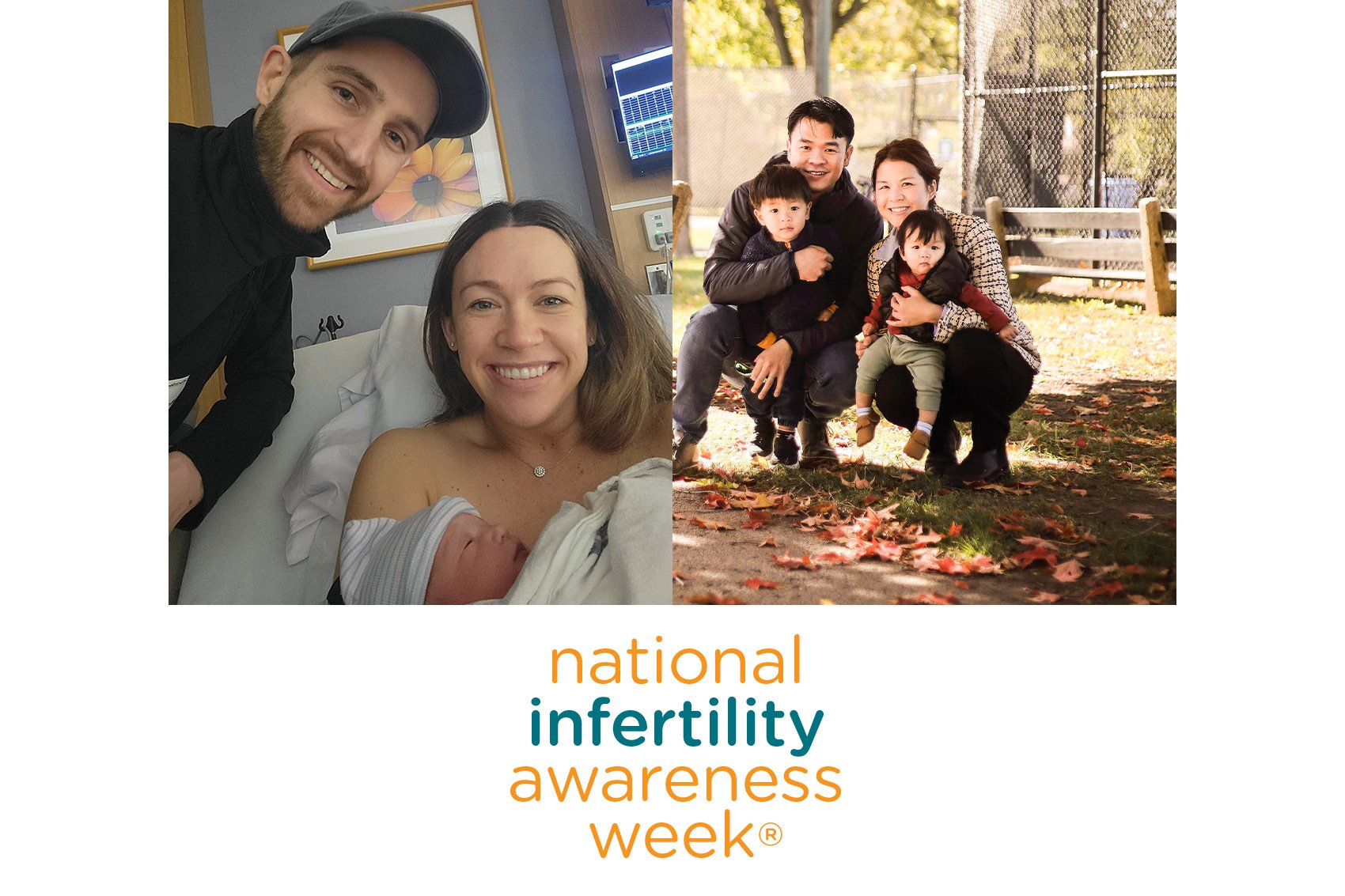We are experiencing a very high volume of calls and messages and ask for your patience. We will answer your portal messages within 48 hours.
We are experiencing a very high volume of calls and messages and ask for your patience. We will answer your portal messages within 48 hours.

Each April, National Infertility Awareness Week offers space to elevate voices, share real stories, and break the silence surrounding infertility. This year, we’re honored to feature a deeply personal conversation between two fertility doctors who have walked this path themselves.
Dr. Lisa Shandley and Dr. Thanh-Ha Luu are more than providers—they are survivors of the infertility journey, and they’ve chosen to share their truths in support of others navigating similar roads.
Both Dr. Shandley and Dr. Luu are known for their expertise and compassion. But when they found themselves facing their own fertility struggles, they experienced firsthand the emotional upheaval so many patients know all too well.
Despite their medical backgrounds, nothing prepared them for the heartbreak, uncertainty, or emotional toll of infertility. Being a patient in their own clinic felt surreal—a collision of roles that made it hard to know where professionalism ended and vulnerability began.
Dr. Luu's fertility journey began with IUI and eventually led to IVF. Even with her deep knowledge, she struggled with doubt when her egg retrieval yielded fewer eggs than expected.
"I trusted the science," she shared, "but I didn’t always trust my body."
Through perseverance and hope, she eventually welcomed her son—a powerful reminder that science and spirit walk hand in hand on this path.
Early in her pregnancy, Dr. Luu experienced bleeding. Surrounded by colleagues in a public setting, she broke down in tears. That moment—raw and unfiltered—became a catalyst.
"It was hard to let others in," she said. "But I learned there’s strength in not pretending you’re okay."
Dr. Shandley recalled a canceled frozen embryo transfer that forced her to rearrange her life—only for the cycle to be called off.
"Time felt like my most valuable resource," she said. "To have it lost like that was deeply frustrating."
The emotional toll of infertility often shows up in missed vacations, canceled plans, and the emotional weight of starting over.
Dr. Luu asked a question that many provider-patients ask themselves:
"How did you hold it together while working and cycling?"
Dr. Shandley’s answer was honest:
"It was exhausting. But oddly enough, it made me feel more connected to my patients than ever."
Both doctors acknowledged that their experiences made them more empathetic, more connected, and more effective providers. But being told that in the middle of treatment? That was hard.
"Yes, it made me a better doctor," Dr. Shandley shared. "But when people said that during my darkest moments, it felt dismissive."
If they could speak to themselves at the beginning of their journeys, they would say:
"You’re not broken. This isn’t your fault. You don’t have to be perfect. You just have to keep going."
Words we all need to hear sometimes.
"Every patient’s story is different," Dr. Shandley said. "But there is always something relatable in each one. Even when you feel alone, you’re not."
Their willingness to share is a reminder that fertility challenges don’t discriminate—they impact patients and providers alike.
Their conversation closed on a hope:
"Let’s create a culture in medicine where doctors can show up as whole people. Where vulnerability is allowed. Where connection is healing."
And maybe that starts right here.
Infertility can feel isolating—but during National Infertility Awareness Week, we are reminded of the power of community. Share your story. Support others. Break the silence.
Use #NIAW2025 and #EmpoweringFertilityJourneys to join the movement.
You are not alone.

Entire Website © 2003 - 2020
Karande and Associates d/b/a InVia
Fertility Specialists
